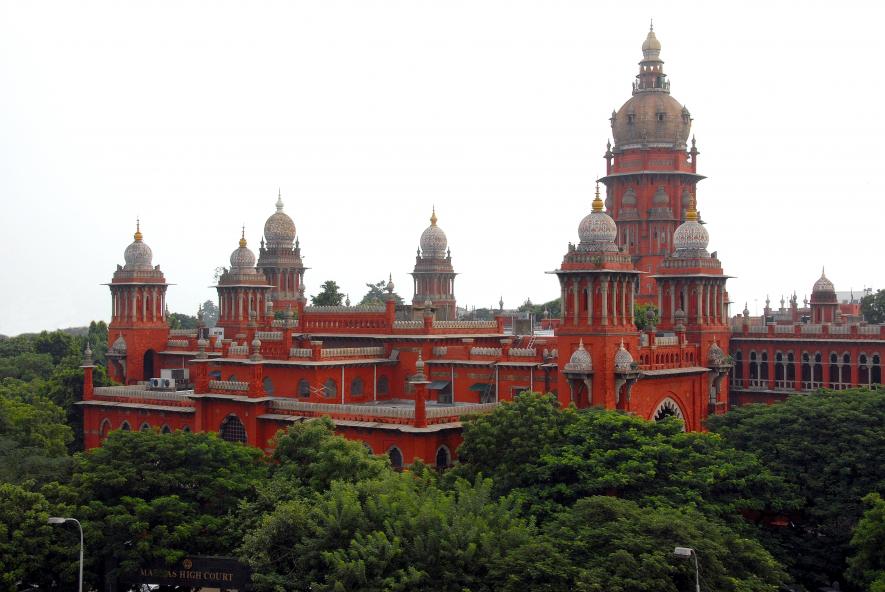Women’s Rights Activists Welcome HC Verdict Acknowledging Wives’ Domestic Labour

Image Courtesy:Wikimedia Commons
In a significant judgement delivered on June 21, the Madras High Court held that unpaid domestic labour performed by a married woman must be considered when determining legal rights to matrimonial property. Justice Krishnan Ramasamy said the property purchase should be considered a joint effort regardless of whether it was purchased under the wife’s or husband’s name.
Experts say this is the first time an Indian court has formally recognised the contribution of a housewife to the husband’s income.
“No law prevents the Judges from recognising the contributions made by a wife facilitating her husband to purchase the property. In my view, if the acquisition of assets is made by joint contribution (directly or indirectly) of both the spouses for the welfare of the family, certainly, both are entitled to an equal share,” said Justice Ramaswamy.
Constitutional law scholars Vasudev Devanesan and Gautam Bhatia say, “The Court is giving a name to, and visualising an aspect of the economy that is far too often invisible: domestic labour, especially when it is performed on an unpaid basis, and primarily by female spouses. The public/private divide has long kept domestic work out of the scrutiny of the vocabulary of rights and equality, and this judgment marks an important step towards countering that pernicious binary.”
The verdict acknowledges that a wife, being a homemaker, performs multiple tasks with managerial and financial skills - planning, organising, budgeting and running errands, with culinary skills - preparing food, designing menus and managing kitchen inventory and with health care skills - taking precautions and giving homemade medicines to the members of the family. By performing these skills, she ensures a comfortable home environment, and her contributions towards the family are not valueless. The verdict said it is a 24-hour job without holidays, which cannot be less equated with the job of an earning husband.
VERDICT EMPOWERS WOMEN
The judgement has been received well among progressive circles and women’s rights groups.
The All India Democratic Women’s Association (AIDWA) welcomed the verdict. It said it had been petitioning successive governments for 15 years for a law recognising the equal contribution of a wife/partner towards the household.
Anu Somasundaram, a social activist working on domestic violence, speaking to NewsClick, said, “Right to property gives women in-built confidence, it makes them feel secure and the space to speak up within the family. Otherwise, they are submissive in vulnerable situations and do not voice their opinions.”
“In fact, the right to household and shared residency is upheld in the domestic violence act. Women cannot be chased out of the house in a conflict. The law already gives them this power,” she added.
The Protection of Women from Domestic Violence Act, 2005 reads, “Notwithstanding anything contained in any other law for the time being in force, every woman in a domestic relationship shall have the right to reside in the shared household, whether or not she has any right, title or beneficial interest in the same.”
“‘Where will I go?’ is a question women facing marital crises struggle with. Marital homes are not considered their space, and are not welcome in their maternal houses. This verdict will further give women abandoned by their husbands, divorced and separated from their partners to lay claim to the property,” added Somasundaram.
Suresh, an activist of Makkal Nalavazhvu Iyakkam, told NewsClick, “The issue of property usually props up after the property-holder dies, and the husband's death leaves the widow stranded with her children. As much as possible, families attempt to exclude women from the right to property.”
Citing personal episodes, he said, “Even if family members are willing to peacefully share the property among themselves after the death of the property-holder, the law provides little space for women to lay claim over property; it is not encouraged by our institutions. So, doubtless, this verdict eases women’s claim to property, and it empowers them.”
‘RECOGNISING WORK, NOT AS WORKER’
Recognising domestic care work done by women at home has raised the question of whether the homemaker is also a worker with workers’ rights.
Shankar, the coordinator of Thozhi, a collective of unorganised women workers, said they welcome the verdict, and it has been their demand to acknowledge women’s care work at home. He said, “However, we have to make the distinction between recognising women’s labour and recognising women as labourers. Women working within the family unit are not the same as domestic workers who sell their labour.”
“If the wife is considered a worker within the house, it raises the question ‘who is the employer?’ Is it the husband? Such an understanding is flawed. The wife here plays an instrumental role in ensuring her husband’s labour is reproduced the next day,” he said.
While deciding the right to the properties, this judgement considered the contribution wives make towards acquiring the family assets by performing their domestic chores, thereby releasing their husbands for gainful employment. She is bearing the cost of social reproduction of labour by cooking, cleaning, child-rearing and other domestic chores.
‘NOT ONLY FOR WOMEN WHO QUIT WORK’
The verdict mentions that if women give up their paid work to devote themselves to caring for her husband and children, it is an unwarrantable hardship when in consequence, she finds herself in the end with nothing she can call her own. An arrangement such as this often involves the wife sacrificing her own economic capacities – and, thereby – her economic independence within the relationship.
Rajalakshmi Ram Prakash, a research consultant and gender expert, said, “This should not be misread as only women who quit work after marriage are eligible for property rights.”
“Although many laws and judgements are progressive, our institutions like banks and insurance agencies are not gender sensitive, so in practice, a lot needs to change,” she added.
She said, “Will homemakers get social security benefits like old age pension as there is no retirement from household work? And, women often outlive men, making them dependent on family members likely to perceive the women didn’t contribute financially & hence a burden.”
“Moreover, this law makes sense only when there is a contest. It does not directly impact the lives of women. They are not made to feel empowered within the family,” said Rajalakshmi.
In light of this verdict, a pertinent question is whether it plays any significant role in the lives of women from lower income groups, whose families will likely not purchase worthwhile property significant enough to demand a share.
Get the latest reports & analysis with people's perspective on Protests, movements & deep analytical videos, discussions of the current affairs in your Telegram app. Subscribe to NewsClick's Telegram channel & get Real-Time updates on stories, as they get published on our website.















